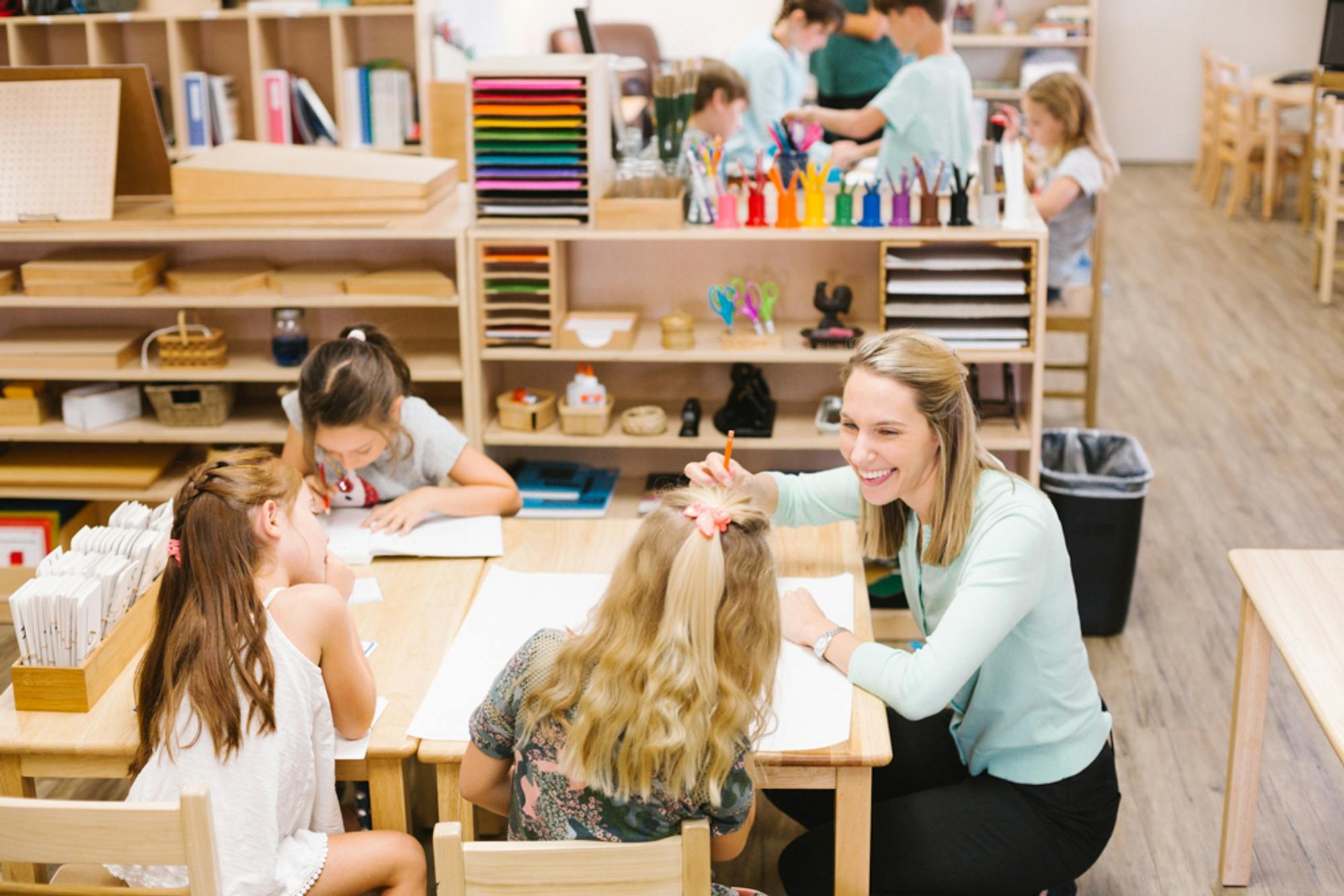Q&A with Biff Maier on education as an aid to mental health
Q&A with Biff Maier on education as an aid to mental health
Maria Montessori argued that education should be an aid to life; that it should support the developmental needs of children as they grow in order to help them fulfil their human potential as adults. We talk to William "Biff" Maier about what he believes fulfilment of human potential looks like in today's world, and how Montessori schools aid children in their journey towards self-actualization.
Biff Maier has worked in Montessori education for over thirty years, and won the AMS Living Legacy Award in 2020. He earned a BA in Psychology from Duke University and a M.Ed from Xavier University. He has also gained Montessori credentials from both AMI and AMS. Biff co-directs the Montessori Elementary Teacher Training Collaborative in Massachusetts, works for the Center for Advanced Montessori Studies in Vancouver and the International Montessori Education Institute in Taiwan, and is currently the Director of Faculty and Curriculum Development at Lexington Montessori School in Massachusetts.
Do you think that schools should play an active role in creating healthy human beings? Where are they currently falling short?
Absolutely. Montessori chose education because that is where the children are. I don’t think she was that concerned with content learning except in as much as it would fully engage and motivate young learners. School is where we grow up: where we learn about relating, regulating, interacting and creating. If we give children the environments they deserve, we will get a different - a “normalized” world! Currently, most schools are a reflection of the manipulative adult culture that has little respect for the agency or intelligence of children. They are places where we learn to harden ourselves and to adopt other people’s goals for us so we can compete.
You argue that the sense of community missing in the traditional school setting is precisely what makes Montessori environments so supportive.
Yes, I think Maria Montessori believed in the innate goodness of people, in the natural drive for learning within a caring, peaceful community. She saw around her adults who were unhappy, dishonest, manipulative and self-centered. She observed how children responded to being treated generously and respectfully. Unhappy, distant children became industrious and caring. These transformations came about as children rediscovered who they are, just as adults sometimes rediscover themselves through healthy, safe relationships. These interactions are quite literally therapeutic. Montessori described how children who had “deviated” from their natural path of joy and industry could regain their footing, become “normalized” as they interact in this type of environment.
You identify the fulfilment of human potential as good mental health. What does that look like in today's world?
I think good mental health can be seen in individuals who have healthy intellects: they take a realistic, logical, rational view of the world; they are Independent and autonomous; they are flexible thinkers who can make adjustments; they embrace challenges; and they know their own strengths, struggles and preferences. They are honest about their feelings, emotionally flexible and self-aware, maturely expressive, self-regulated, empathetic and optimistic. They relate well with others, accepting themselves and others as they are, giving and receiving love. They are secure whether alone or in a group, confident in their sense of self-worth. They enjoy humor and can readily laugh at themselves. Finally, they effectively manage their lives, balancing many aspects of daily living; they are enthusiastic problem solvers with the skills, discipline and generosity to find helpful solutions. They are good listeners and they rebound quickly from frustration.
Regarding infants and toddlers in particular, how do Montessori teachers help them fulfil their human potential?
Toddler teachers welcome each child each day as if they have been away for ages, helping the children separate and connect. They give full, undivided attention. They model an upbeat, optimistic attitude. They model connecting, voicing their appreciation of others. They organize group activities, but individual children’s participation is voluntary. They offer cozy, alone spaces where a child can practice self-calming.
Toddler teachers balance the children’s day with indoor and outdoor time, adequate rest, and opportunities for both group times and independent activity. They design environments where toddlers choose preferred activities and select where they want to work. They patiently support children as they learn to persist in taking care of themselves: putting jackets and shoes on and taking them off; walking up and down stairs, eating independently.
Can you tell us more about the role of the teacher in the Children's House?
Children’s House teachers don’t over-simplify for an “absorbent mind.” They teach with sophisticated and useful vocabulary. They respect children’s ability to understand. They enable children to explore at their own pace, discovering concepts and connections as they discover and adjust their own errors. As much as possible, activities contain built-in control of error. When children see error as a problem to be investigated instead of a personal flaw, they build resilience. The priority at this age is to develop the habit of initiating tasks, working to completion, and finding closure.
Teachers include emotional expression in the vocabulary development of these children, and they add the language of regulation. This plays an important role in children's growing ability to manage their feelings and gain perspective. The teachers model empathy, and they make kindness matter. They make caring a value and a priority in the room. They are positive and encouraging. Every day, every child gets to start over.
